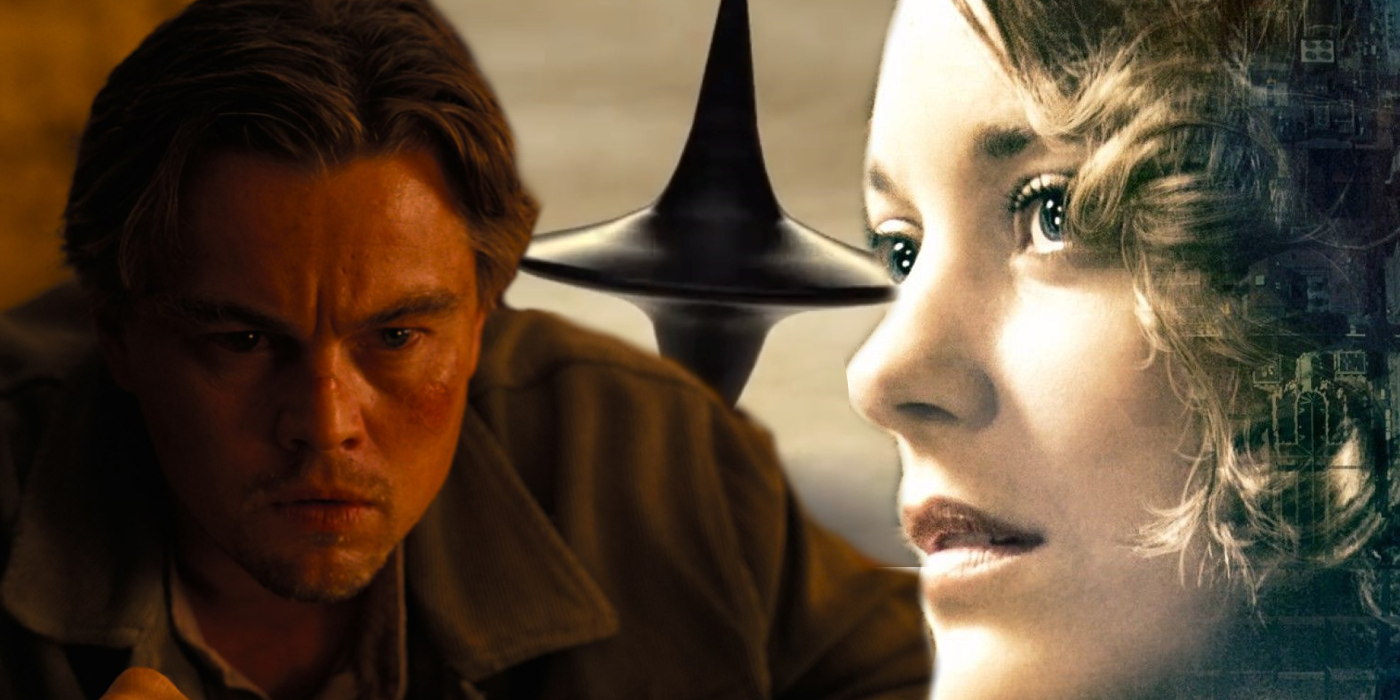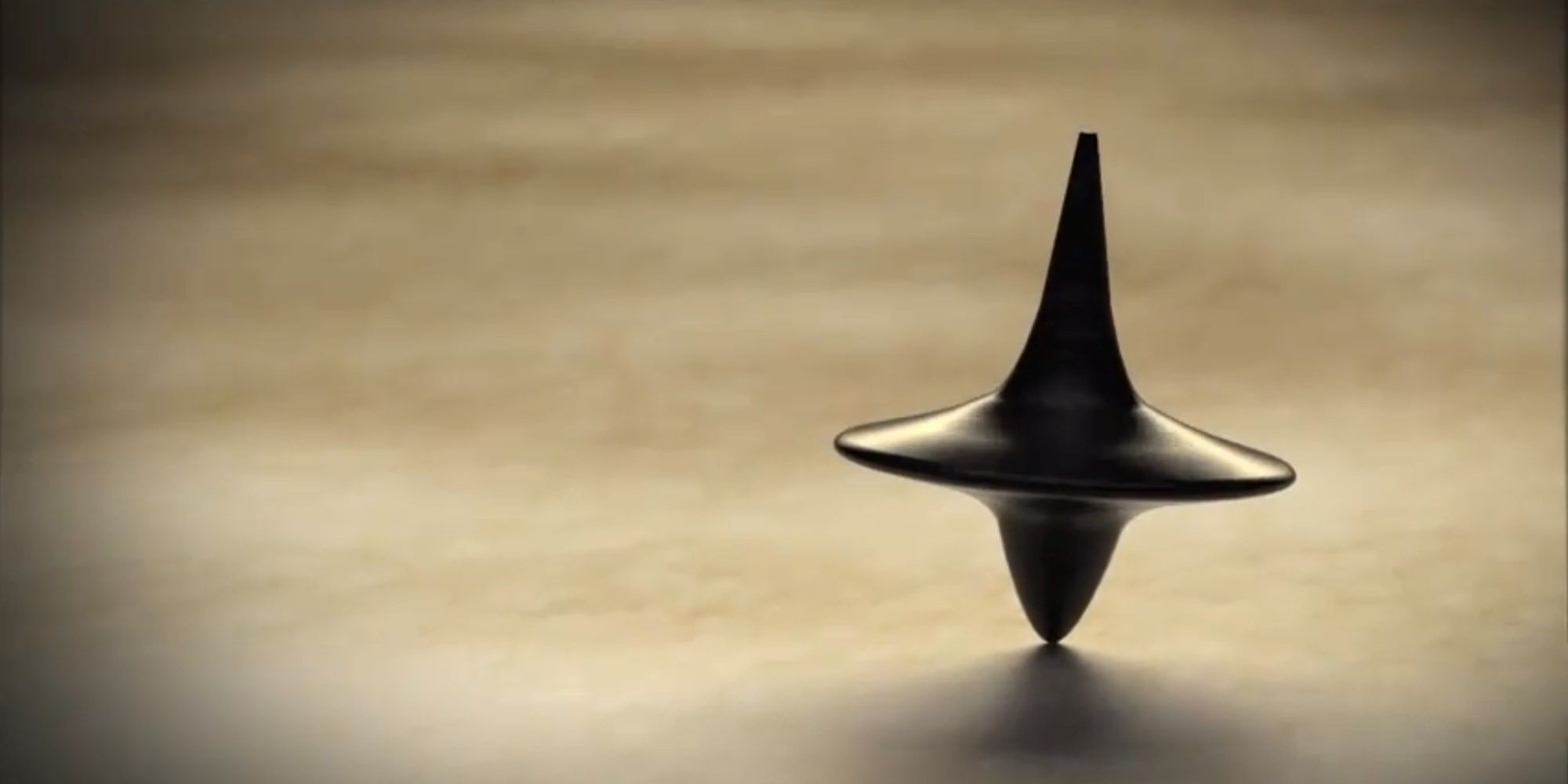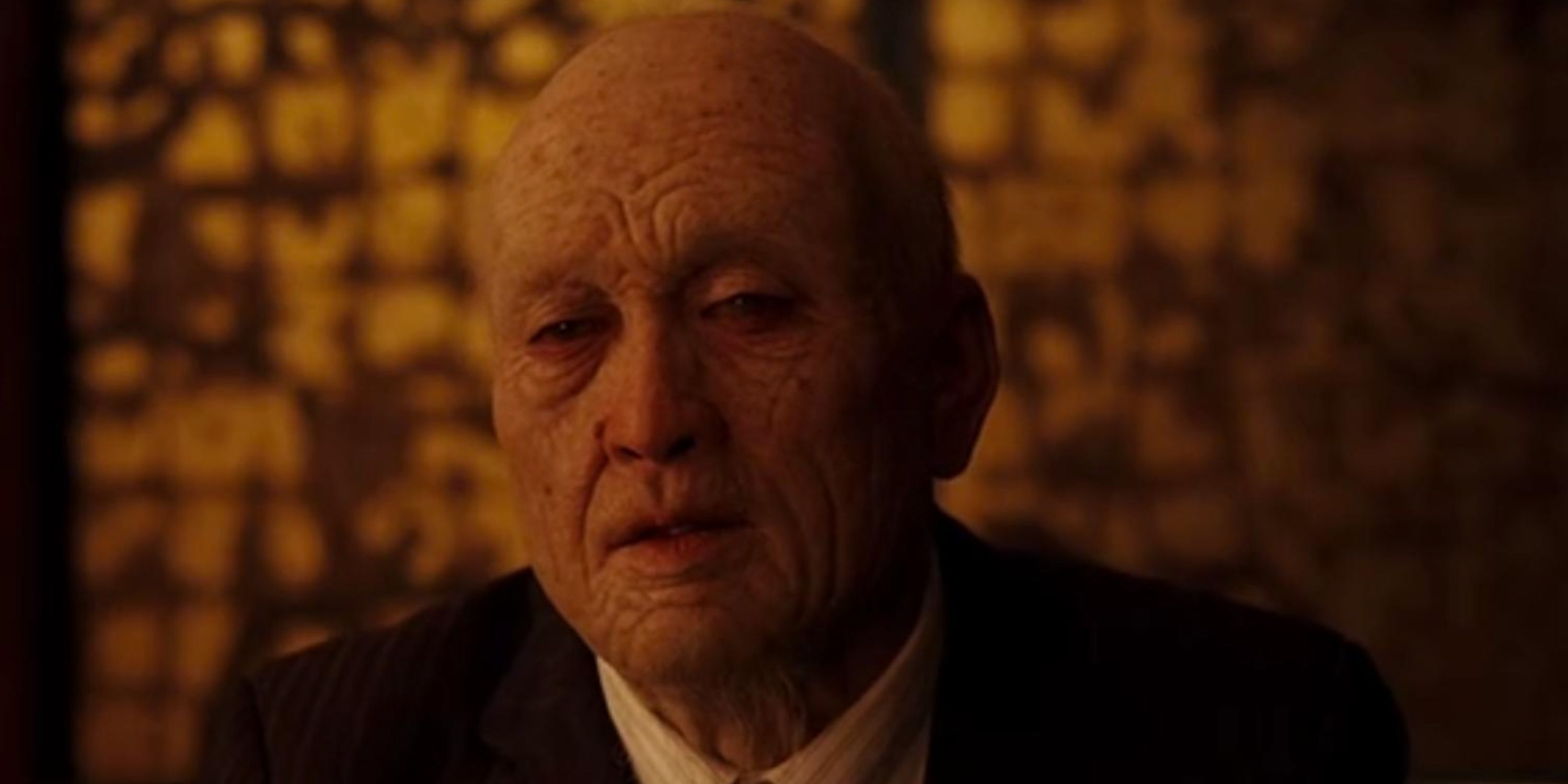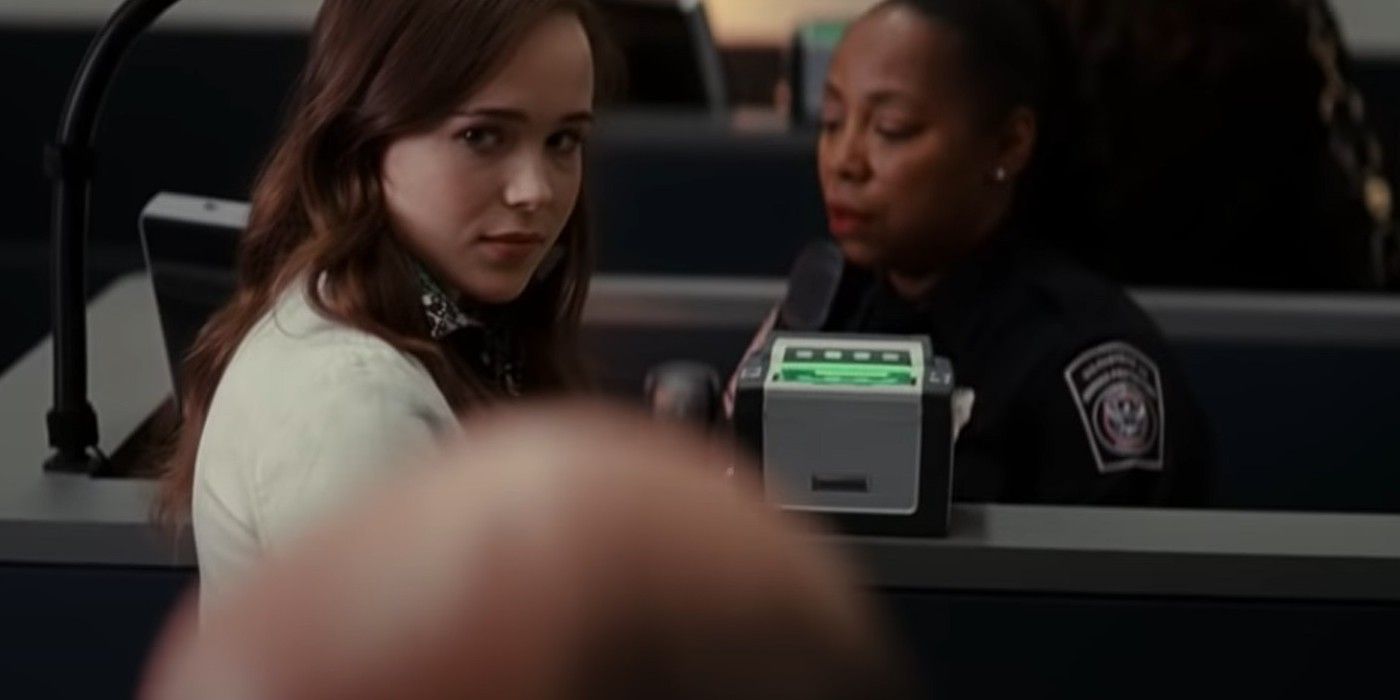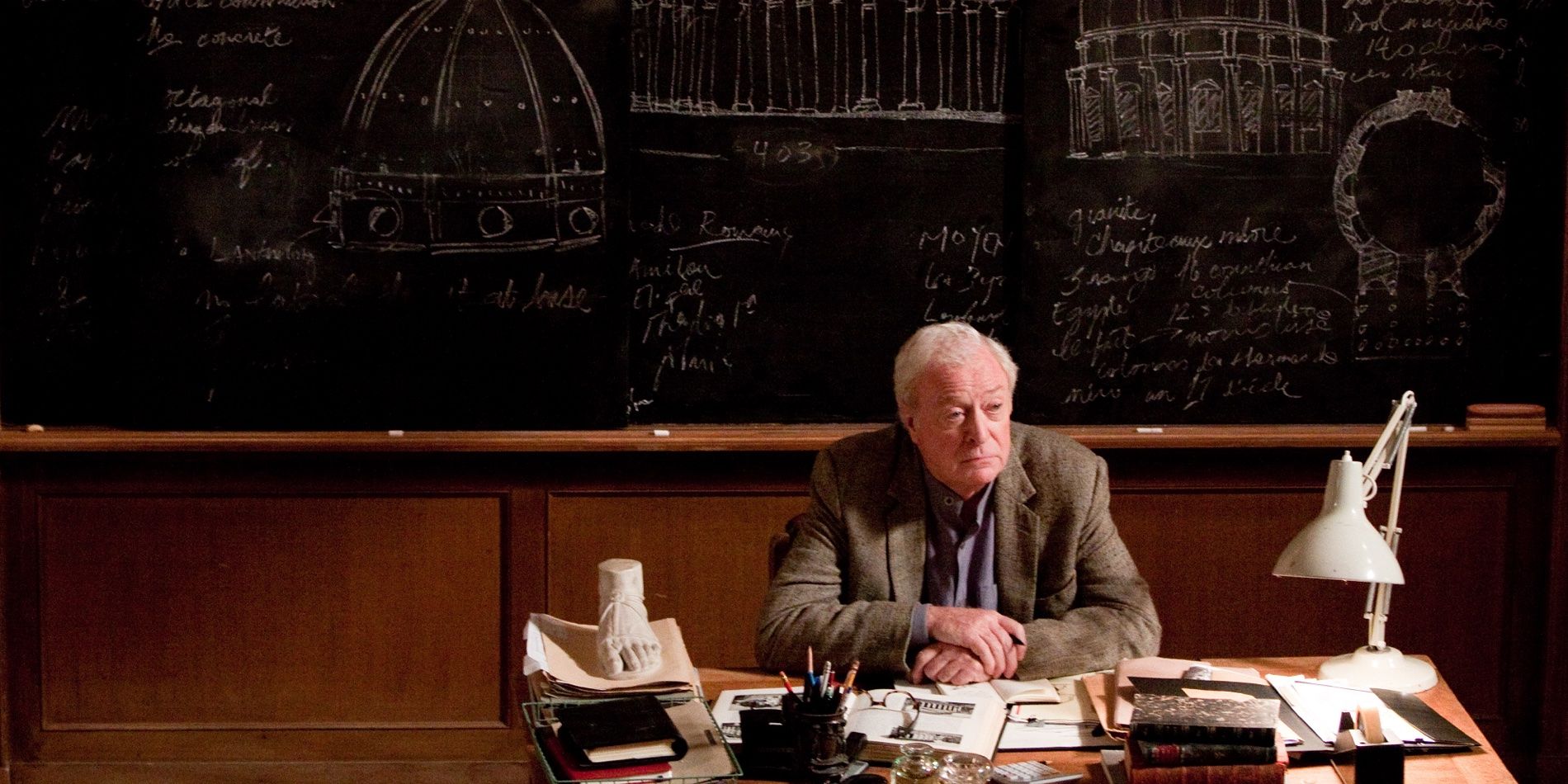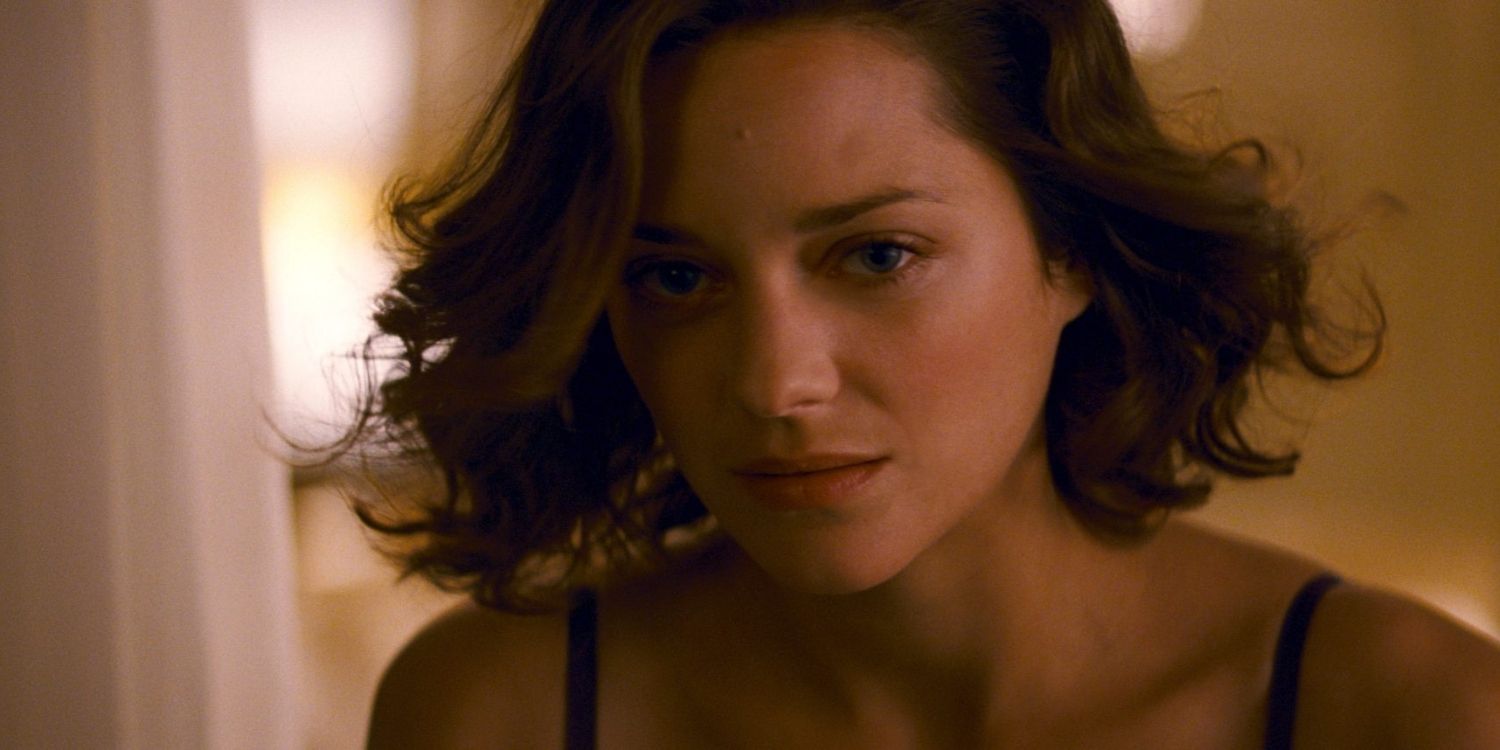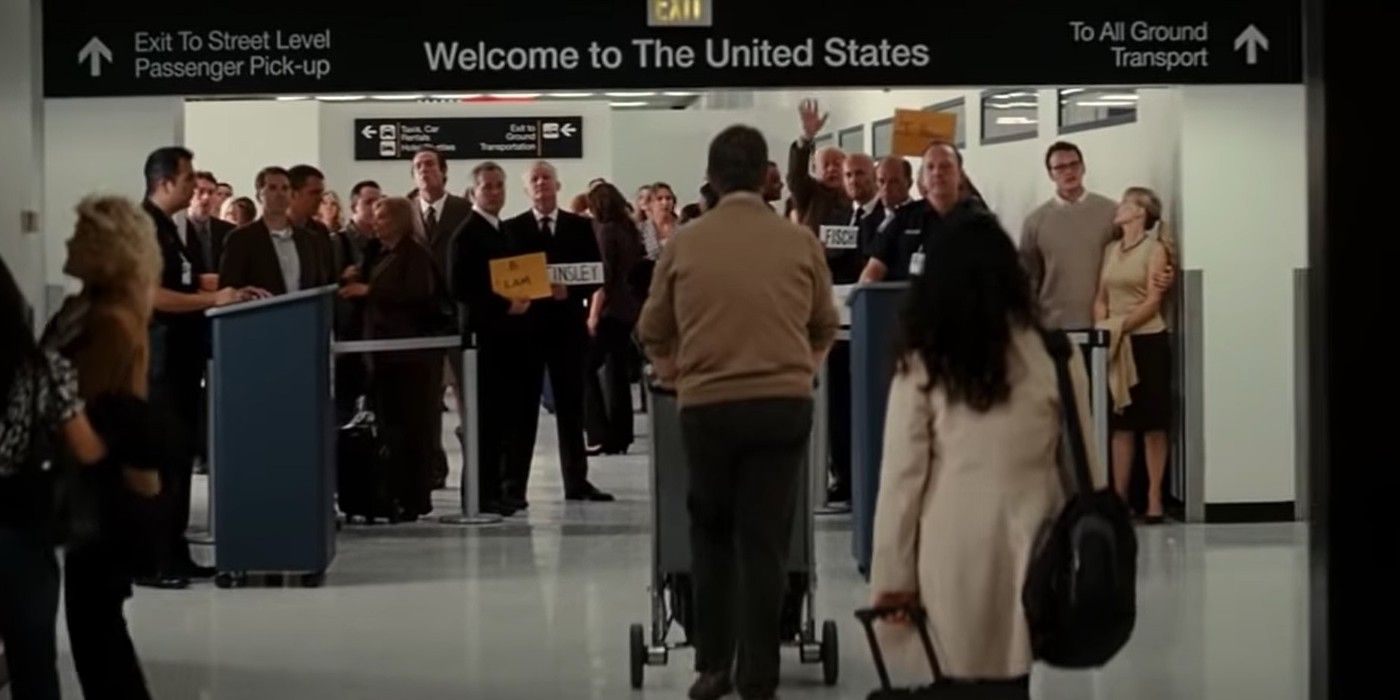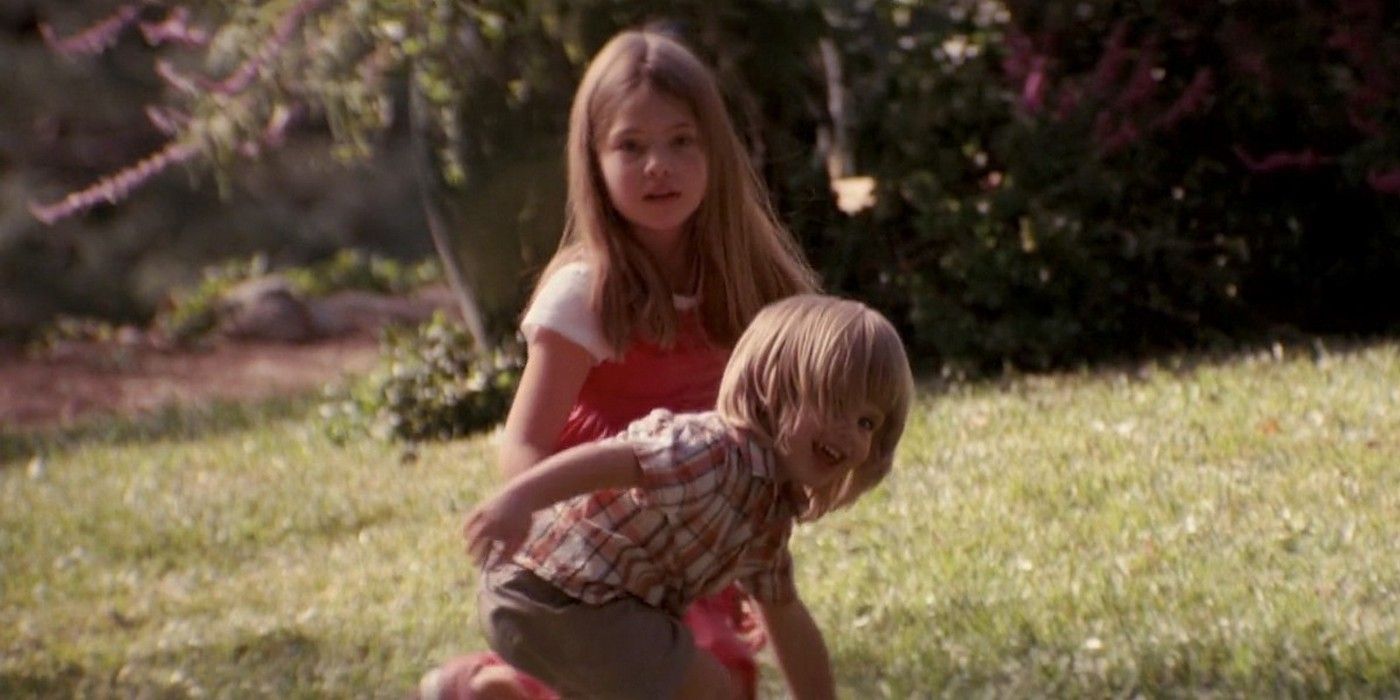Inception fans still can't decide whether Cobb is still dreaming in the final scene or not - here are all the clues suggesting he might be. Showcasing Christopher Nolan at his head-scratching finest, Inception exists in a world where shared dreaming is possible through a combination of drugs and technology. Using this military-sourced technique, sneaky types such as Leonardo DiCaprio's Cobb can slip into an unsuspecting mind and walk about freely, picking up useful and valuable information. Inception dares Cobb to go deeper, with Saito offering our protagonist a ticket back to his children if he can successfully use shared dreaming to implant an idea, rather than steal one.
But while Inception's ending may appear to be a happy one, there's more going on beneath the surface of this final scene. Some viewers believe Cobb doesn't wake up on the plane, and never reunites with his kids in the U.S., but is still stuck in some form of limbo. Nolan himself has refused to be drawn either way on his ambiguous ending, maintaining that the point of the story is Cobb not wanting to know. As Inception continues to confound and confuse, this is the case for Cobb's ending being a falsehood.
The Totem Doesn't Fall
The detail that turned Inception's ending into one of the most hotly discussed scenes in movie history. In the world of Inception, a totem is a small object carried by those who infiltrate dreams, used as a way of determining reality. A totem is unique to the individual, and should be impossible for others to replicate faithfully. Cobb's totem is a spinning top, which will continue turning forever in a dream, and only fall naturally in the real world. Cobb makes a habit of spinning the totem following each risky adventure, but when he gets off the plane after a successful mission and begins the test, he's quickly drawn away by his children. Cobb ignores his totem, and the camera cuts to black before the truth is revealed. While some viewers still swear the totem wobbles shortly before the credits start rolling, the continued spin is Inception's first clue that Cobb might still be sleeping soundly in business class.
We Don't See Cobb's Full Dream Exit
Another reason to question the fidelity of Inception's final scene is Cobb's abrupt kick-out from Limbo. During the final level of the mission (the snowy fortress), both Saito and Fischer die, falling into Limbo, with Cobb and Ariadne following shortly after. Ariadne and Fischer exit first, kicking back up to the fortress by jumping out of a tall building. After returning to Level 3, Fischer completes the inception, while the audience sees Ariadne wake up just in time to get kicked up to Level 2 (the hotel). However, Cobb and Saito exit limbo in a very different manner. As with Ariadne and Fischer, Cobb and Saito kill themselves in order to escape Limbo (this is confirmed when Saito's hand moves towards Cobb's pistol) but the very next shot takes place back on the plane.
There is a potential explanation as to why Ariadne and Fischer return to the fortress while Cobb and Saito go directly to reality. Even with the time dilation, Cobb missed his kick sequence (Arthur leaves his body in the submerged van on Level 1), so as long as the sedation runs out on the plane, Cobb could feasibly wake up directly from Limbo. Furthermore, it's implied that Cobb and Mal also woke up straight away after violently ending their Limbo experience. With that said, the ambiguity around Cobb's exit compared to Ariadne and Fischer is enough to add another question mark to Inception's final scene. Inception doesn't show Saito firing the gun, nor the PASIV machine's sedation ending, leaving room for speculation.
The Dream-Like Airport Scene
From the moment Cobb wakes up aboard the plane, Inception begins feeling like a very different film, and it's not clear whether this is because Christopher Nolan is rapidly heading towards his happy ending, or because Cobb is dreaming his ideal scenario. After Cobb wakes up on the plane, everything seems normal enough - an air hostess with hot towels, Fischer looking pensive, Saito making good on his promise. But as Cobb strolls through the airport, the scene becomes suspiciously idyllic. Despite Leonardo DiCaprio looking shiftier than ever, the immigration officer happily welcomes him back into the country. Cobb then walks past the whole team - Ariadne, Eames, Arthur, Fischer, Saito and Yusef - all giving each other a knowing wink or nod. The sequence almost feels like a procession of friends forming a guard of honor as Cobb leaves his old life behind, and there's an airy, ethereal quality that's unlike anything else in the film's reality.
Inception's airport scene is oddly reminiscent of another Leonardo DiCaprio ending - the final Rose dream in Titanic. As old lady Rose reflects upon her fateful voyage, she imagines herself back on the Titanic (restored to its former glory, obviously), walking up the grand staircase surrounded by all the folks she befriended on the trip before finally reaching Jack at their meeting place by the clock. The airport is almost Cobb's equivalent of this - a too-good-to-be-true farewell before he moves on.
Professor Miles' Reaction To Cobb
Inception introduces Michael Caine's character, Professor Miles, as Mal's father. Since Cobb went on the run, Miles has been looking after the children his daughter left behind, and is less than encouraging about his son-in-law's illegitimate line of work. When Cobb and Miles meet in the professor's French university classroom, there's an obvious tension between the duo - a friendly sparring and an exasperation on Miles' part.
Indeed, the original Inception script revealed that Mal's mother left her husband due to his continued association with Cobb, adding a further layer of friction between the two. When Cobb and Miles find each other in the airport, however, Michael Caine is suddenly Alfred from The Dark Knight - the friendly grandpa, delighted to see Cobb back on American soil. While it's possible he's simply happy his grandchildren have their father back, it's odd that Miles was so vocally opposed to Cobb's dream-stealing during their Paris scene, but has no qualms whatsoever in Inception's ending sequence. Again, this could be part of Cobb's Limbo creating an idealistic version of his homecoming.
Mal Proves Cobb Wanted To Be In Limbo
Christopher Nolan insists that the point of Inception isn't whether or not Cobb is dreaming, but that he doesn't care. After finally confronting Mal in Limbo during the Fischer mission, DiCaprio's protagonist has shed his guilt and his long-held demons. But just because Cobb finds resolution, that doesn't necessarily mean his future lies in reality. When Mal appears in Cobb's dreams, she's a product of his own mental anguish, so when "Mal" tries to bring her husband down into Limbo, this is really Cobb's temptation to give in and accept a pleasant dream over a harsh reality without his children.
The key scene is Cobb's return to Limbo alongside Ariadne. This is his first visit since leaving with Mal, and it's only natural that walking through the streets made together by husband and wife might intensify his burning desire to return. When Cobb and Mal then have their final confrontation over Fischer's prone body, the troublesome projection drops some interesting lines such as "admit it, Dom, you don't believe in one reality anymore" and "you keep telling yourself what you know, but what do you believe?" Keeping in mind that Mal is part of Cobb here, these quotes highlight his internal conflict over whether to choose Limbo as reality. As their conversation draws to a close, Inception leads the audience to believe Cobb "wins" by talking down Mal and letting go of his guilt, but it's possible he's actually giving in to Mal here.
During their exchange, Mal insists Cobb no longer cares what's real and what's a dream, whereas Cobb repeatedly tries to assert reality as an vital concept. By ignoring the spin of his totem, Cobb effectively proves Mal won the fight, and that he doesn't care about reality any longer. Therefore, did Cobb give in to Limbo after Ariadne and Fischer left?
The MAL Sign
Adding to the evidence that Inception's airport walk is a fabrication of Cobb's mind, there's a sign among the waiting drivers that appears to read "LAM" - a reverse of Mal. Any time Cobb dreamed, his manifestation of Mal would attempt to sabotage missions, desperately trying to bring him down to Limbo to play happy families again. If Cobb is still dreaming at the end of Inception, and has finally given in to his latent desire to accept Limbo, it makes sense that Mal would still appear, but in a less aggressive fashion.
Cobb's Kids Are Where He Remembered Them
There's a common misconception that when Cobb reunites with his children in the Inception finale, the two youngsters aren't any older than how he remembers them in dreams. Not only are the pair physically bigger than in Cobb's head, but the exact amount of time they've spent apart from their father is never revealed explicitly, giving Inception some leeway with their appearance.
However, the final image of Cobb's children does leave doubt over whether the brats are real. The numerous times Cobb sees his children while dreaming, they're crouched over, usually examining something outside on the ground. After landing in the U.S. and making his way to Professor Miles' home, Cobb finds his children in more or less the exact same positions, hunched over the grass. James and Phillipa are also wearing almost identical colors compared to their counterparts in Cobb's dreams. It's certainly a little suspicious that this emotional reunion closely resembles what Cobb has been imagining since he first went on the run. It might not have been satisfying in a narrative sense, but wouldn't Inception's ending be more realistic if one kid was at school, and the other was in the toilet when their dad arrived home?

